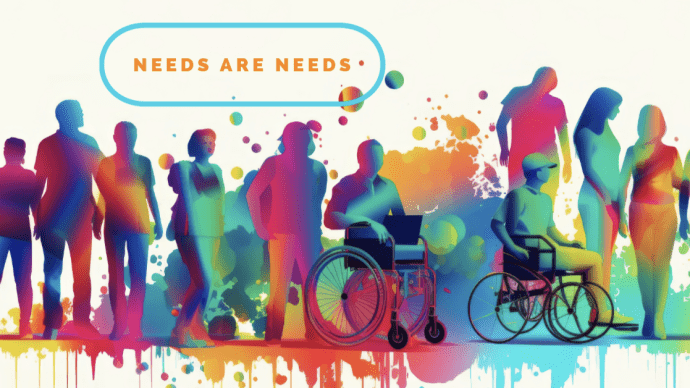As I reach the end of my Master’s Degree (one semester left, woo!) I am still faced with puzzled looks when I tell people that I am completing a Master of Education Degree with a specialization in Exceptional Learners. I often have to clarify with “you know… special education”.
…but why does that bug me?
Like many other phrases and terms, there comes a time when we evolve as a society and shift the language we use due to the negative connotation our words have. When talking about students with exceptionalities, we often use the term “special needs” (to go hand in hand with “special education”).
As humans, we all have a variety of needs that must be met in order to succeed. Personally, I wear glasses. Without my glasses, I can see clearly when things are less than an arm’s length away… but otherwise, things are very blurry. However, no one has ever referred to my glasses, contacts, or eye exams for updating my prescription as “special needs”. So why is the need to use noise cancelling headphones to focus, voice-to-text software to write, and even wheelchairs to move considered a special need? How is the value of the needs of one human being different from the needs of another. Why is it special?
When we label students’ needs as being “special”, it feeds into the cycle that supporting exceptional learners is an extra task or job to do. Where in reality, supporting the needs of all learners IS the job. Having supports and accommodations in place for students who have disabilities should not be something special, but rather these supports are put in place in order to remove barrier and provide students with the opportunity to participate actively, and equitably, in their learning communities.
Here is Jane Velkovski, a disability advocate who believes that assistive technology should be available to all of those who need it. While the video is long (~13 minutes), I highly recommend watching it.
Don’t have the time to watch it? Scroll down to see my favourite two excerpts from the video.
“Can you imagine how my childhood would look like without my power chair? I cannot. I’m forever grateful to the family that donated my power chair, but my freedom and independence and ability should not depend on luck or charity. No one’s should be.”
“Freedom of movement, no matter on legs or on wheels, is a human right, which means policymakers have to provide what children with disabilities need in order to move. It’s about being able to go to the park to play, go to school, go to work – really, everything. This chair is my legs. This chair is my life.”
After watching the video, or reading these small excerpts, understanding that freedom of movement is a human right – should providing Jane with a power chair and the ability to move be described as a special thing? Or can it simply be described as removing the barriers in order for him to move, as per his human right? …just like my glasses – removing the barrier of blurred vision.
So is it really “special”?
I’d like to finish by saying I recognize that there are many various views about the use of language and terminology when it comes to disabilities and exceptional learners. There might be readers who completely disagree with everything I have just said, and feel strongly about continuing with the use of the terms Special Education and Special Needs. This post contains my own thoughts and feelings and I am opening the door for productive and constructive conversations with anyone who would like to discuss further (in agreement or disagreement).

Hi Lianna,
What a great post! It made me think about the language we use in education and how it has evolved over time. I connected deeply with Jane Velkovski’s video about assistive technology. I had a cousin with Muscular Dystrophy and a friend with ALS, who both used motorized wheelchairs. The freedom and independence these devices gave them were invaluable. Assistive eye-controlled computers allowed them to study, stay connected, and write books. Your post was so thought provoking! All students should have access to the tools and accommodations they need to learn.
Let’s keep this conversation going. 🙂
Julie